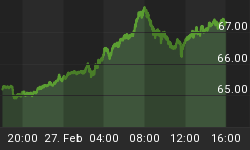Why Read: In order to better understand Germany's Eurozone dependencies, and why Germany is between 'a rock and a hard place' as it makes decisions that likely will:
-
result in the continuation or demise of the Eurozone as it currently is structured; and,
-
impact all developed and developing non-Eurozone countries to a larger or smaller degree.
Featured Article: An article yesterday sets out in quite clear terms a number of current 'facts and circumstances' that are relevant to what a Euro rescue may have to mean to German taxpayers, and what a Euro break-up would mean to Germany. By way of background, the following table sets out population, 2011 GDP and Outstanding Debt:GDP Eurozone country data (source: Wikipedia).
| Ranking by 2011 GDP | Population (millions) | 2011 GDP (U.S.$ billions) | Debt:GDP Ratio |
| Germany | 81.9 | 3,577 | 82.0 |
| France | 65.4 | 2,776 | 86.5 |
| Italy | 60.9 | 2,199 | 120.9 |
| Spain | 46.2 | 1,494 | 69.3 |
| Netherlands | 16.7 | 840 | 65.9 |
| Belgium | 10.9 | 513 | 98.7 |
| Austria | 8.5 | 419 | 72.9 |
| Greece | 10.8 | 303 | 144 |
| Finland | 5.4 | 267 | 49.3 |
| Portugal | 10.6 | 239 | 108.5 |
| Ireland | 4.6 | 218 | 108.4 |
| Slovakia | 5.4 | 96 | 43.5 |
| Luxembourg | 0.5 | 58 | 18.6 |
| Slovenia | 2.1 | 50 | 48.5 |
| Cyprus | 0.8 | 25 | 72.4 |
| Estonia | 1.3 | 22 | 6.1 |
| Malta | 0.4 | 9 | 73.0 |
| Total | 332.4 | 13,105 |
In summary, the article suggests that proposals made to date within the Eurozone create concerns that German taxpayers will in the end be asked to pay for the financial problems of other Eurozone countries. That said, reasons suggested as to the consequences to Germany of a Euro break-up include:
-
high costs estimated to amount to about 1.5 trillion euros, with the greatest share of that risk accruing to the Bundesbank;
-
what are said to be 'disastrous consequences' for German banks, including large euro values in bond holdings of other Euro countries, and loans to banks and companies in those countries;
-
significant euro exposures of German insurance companies and other businesses;
-
an exchange rate escalation of new German currency estimated to possibly be 30% in the first year if the euro is abandoned - which would have an estimated 12% decline in German exports and a 7% drop in German economic output; and,
-
significant post-euro increases in German sovereign debt.
Commentary: Assuming the foregoing 'consequences' to Germany are realistically stated, and they sound 'directionally right', Germany has to be caught between a 'Rock and a Hard Place'. My comments:
-
I had the opportunity to travel through East Germany within months of the Berlin Wall falling, and met in what was by then the former East Berlin with the German Government agency responsible for finding 'homes' for the over 11,000 former East German businesses that operated in East Germany prior to the Wall falling. I was told that books and records for a good number of the smaller of those companies were difficult to sort out, and that most of those businesses had inefficient multiple-management levels. Moreover, it seemed to me that within months of the Wall coming down that the majority (if not all) of the best of the East German businesses had been spoken for. The task facing the people I met with was formidable;
-
in the ensuing +20 years Germany has not only restructured the former East Germany economy, but Germany overall has flourished - in part due to the formation of the Eurozone; and,
-
the question now has to be: on balance, will Germany work with the other Eurozone countries and support them out of Germany's own self-interest, or will it 'take its losses' and move on? The likely answer has to lie in:
-
a final quantification, estimation, and guessing by Germany of losses it will suffer if it supports Eurozone continuity versus those same losses Germany will suffer if it effectively abandons the Eurozone; and,
-
whether an 'in-between' position can be found where only some of the current 17 countries leave the Eurozone, where the resultant 'Eurozone' will be reasonably certain to function in a manner favourable to Germany.
-
This is a hugely important matter whose economic implications extend well beyond the Eurozone. It is also a highly complex matter that seems to become more complicated 'by the week'.
In a second article, Bill Gross ( who heads Pacific Investment Management Company, LLC, the world's largest bond fund) is reported as saying on Bloomberg television that German bonds are no longer attractive given:
-
the potential economic issues that will befall Germany should Greece exit the Eurozone; and,
-
Germany's potential requirement to support Spain and other Eurozone countries.
World Turns to Unwilling Germany to Save the Euro
Source: Spiegel Online, June 18, 2012
Reading time: 4 minutes
Also read: What safe haven? Bill Gross calls Germany a credit risk
Source: The Financial Post, John Shmuel, June 18, 2012
Reading time: 1 minute















